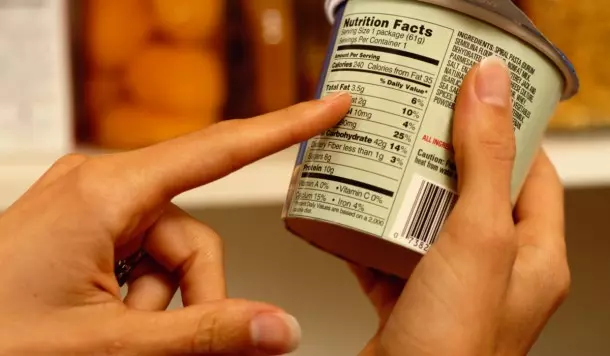
The Food and Drug Administration (FDA) is responsible for ensuring that food in the United States is properly labeled as safe for human consumption, but FDA labels do not typically include the mention of genetically modified ingredients or other potentially hazardous ingredients, such as monosodium glutamate (MSG), BHA or BHT, sodium nitrate, sulfite, and more.
Over the past few years, customers have started to become more and more aware of the ingredients in their food. Customers have started requesting that products be labeled as Non-GMO Project Verified, certified organic, certified vegan, or gluten-free.
After companies began labeling their products with additional information on food production methods, many customers started to feel that they could trust the companies that were being honest and upfront about what ingredients they used in their food. If all of the ingredients used in a product were presented to them, they felt better knowing that they had the right to choose whether or not they wanted to consume a particular item.
Labels Make A Difference
A recent study shows that consumers are slowly starting to trust food companies once again, mainly because companies are becoming more transparent about how their products are made, thanks to FDA labels. Consumers are more likely to be interested in knowing whether or not their food is fresh, contains natural flavors, and whether or not hormones or antibiotics were used.
Interestingly, consumers are more likely to trust smaller food companies or startups rather than larger corporations. However, they do tend to trust iconic brands from larger corporations since they have been around for longer and have a proven track record. For example, General Mills is a large, iconic brand and is now the third largest producer of organic and natural foods in the country. Even many of the non-organic products from General Mills are clearly labeled as GMO-free.
More Work To Be Done
According to a recent study published on FoodNavigator-USA.com,
the percentage of consumers who trust that food companies are being transparent with their customers increased by 15 percent since 2012. From 2012 to 2016, the percentage increased from 19 percent to 34 percent. This is likely due to the increase in public awareness about the food industry and the new interest in where our food comes from.
While consumers are starting to have confidence in the food industry again, they are trusting the FDA and the USDA even less than they did. The level of confidence in the FDA and USDA both decreased by 7 percent since 2012. When it comes to picking up products, however, consumers are trusting friends and family even more, farmers and ranchers, as well as the medical community.
As FDA Labels Decline, Food Labeling Comes To The Rescue
Despite declining trust in the FDA, food labeling can have a major impact in restoring customers’ trust in the food industry. Voluntary labels that relate to production practices may also be a major selling point. These include fair trade and animal welfare labels, that are meant to educate consumers and to help these brands stand out amongst their competitors.
As long as companies remain transparent and put their product information on display, consumers will deem them trustworthy and worth supporting.
 The Food and Drug Administration (FDA) is responsible for ensuring that food in the United States is properly labeled as safe for human consumption, but FDA labels do not typically include the mention of genetically modified ingredients or other potentially hazardous ingredients, such as monosodium glutamate (MSG), BHA or BHT, sodium nitrate, sulfite, and more.
Over the past few years, customers have started to become more and more aware of the ingredients in their food. Customers have started requesting that products be labeled as Non-GMO Project Verified, certified organic, certified vegan, or gluten-free.
After companies began labeling their products with additional information on food production methods, many customers started to feel that they could trust the companies that were being honest and upfront about what ingredients they used in their food. If all of the ingredients used in a product were presented to them, they felt better knowing that they had the right to choose whether or not they wanted to consume a particular item.
The Food and Drug Administration (FDA) is responsible for ensuring that food in the United States is properly labeled as safe for human consumption, but FDA labels do not typically include the mention of genetically modified ingredients or other potentially hazardous ingredients, such as monosodium glutamate (MSG), BHA or BHT, sodium nitrate, sulfite, and more.
Over the past few years, customers have started to become more and more aware of the ingredients in their food. Customers have started requesting that products be labeled as Non-GMO Project Verified, certified organic, certified vegan, or gluten-free.
After companies began labeling their products with additional information on food production methods, many customers started to feel that they could trust the companies that were being honest and upfront about what ingredients they used in their food. If all of the ingredients used in a product were presented to them, they felt better knowing that they had the right to choose whether or not they wanted to consume a particular item.